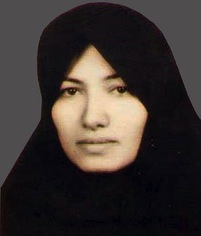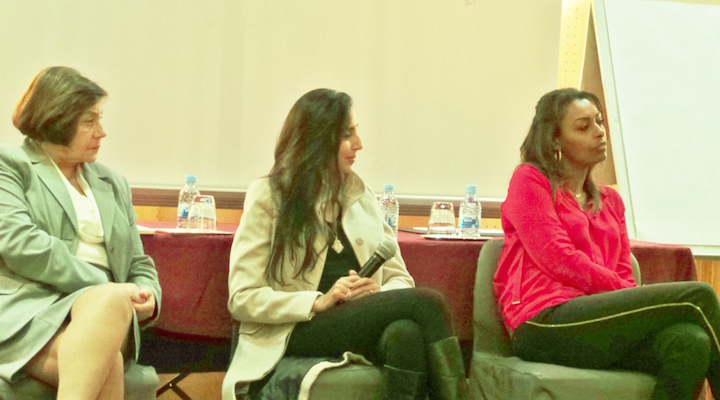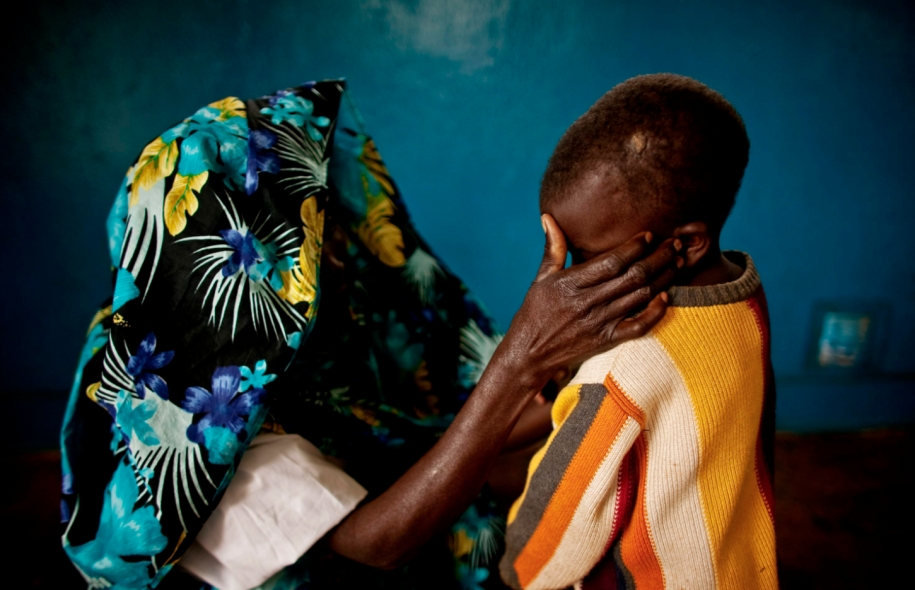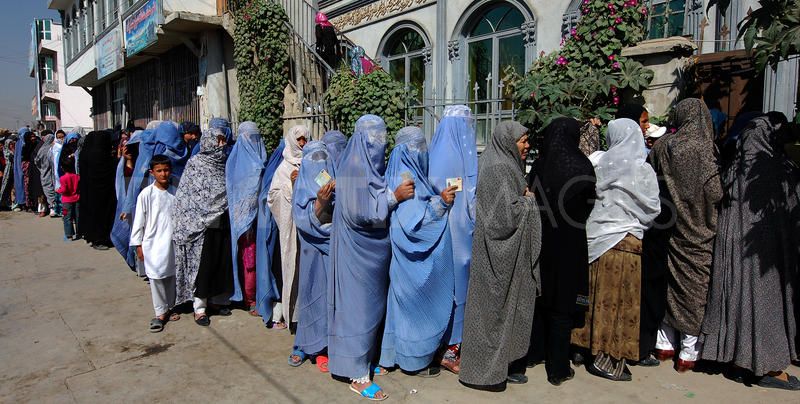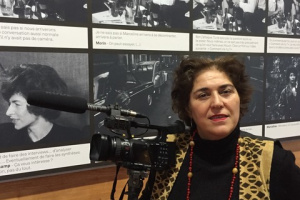Officiellement, la peine de mort par lapidation en cas d’adultère n’a été légalisé en Iran qu’entre 1983 et 2002. Cependant, sa pratique n’a jamais cessé; Amnesty International a recensé 77 cas de lapidation depuis 1980, et 14 personnes qui encourent ce risque aujourd’hui. La pratique de la lapidation, aussi horrible soit-elle indépendamment du genre de la personne, discrimine les femmes. En effet, l’homme est enterré jusqu’à la taille, ce qui lui laisse les bras libres pour tenter de s’enfuir. A l’inverse, la femme est dans la terre jusqu’à la poitrine, les bras également enterrés. Depuis 2006, la communauté internationale s’insurge fortement contre cette pratique, on se souvient par exemple du cas de Sakineh Ashtiani. Condamnée à la lapidation pour adultère, elle n’a pas encore été exécutée grâce à l’action de ses enfants, qui ont mobilisé les ONG des droits de l’homme et l’ONU dès 2006. Néanmoins, la police iranienne a emprisonné l’avocat de Sakineh en 2010, et les garde tous deux dans des conditions dégradantes. Les élections présidentielles en Iran ne semblent pas changer la donne. Selon la directrice Moyen-Orient de Human Rights Watch, Sarah Leah Whitson, la situation en Iran est claire: « En insistant sur la conservation de la lapidation dans la code pénal, les autorités iraniennes offrent la preuve qu’elles président un système de justice basé sur la peur, la torture et l’injustice. »
International campaigns calling for the end of stoning as a death punishment in Iran have been increasing in the leading up to the presidential elections on June 14th. They have, until now, gone unheeded.
The history of stoning in Iran begins in 1983, when the Islamic Assembly of Iran ratified the Islamic Penal Code, which establishes stoning as a form of punishment for the crime of adultery. Nevertheless, there had been at least ten deaths caused by stoning prior to stoning becoming a law. Amnesty International also reports that at least 77 people were killed by stoning in Iran since 1980.
Officially, stoning in Iran has been outlawed in 2002 via a directive by then-Head of the Judiciary, Ayatollah Mahmoud Hashemi Shahrudi. In 2005, the Minister of Justice Jamal Karimi-Rad stated, “in the Islamic Republic, we do not see such punishments being carried out.” Nonetheless, since 2003, 8 people have been stoned to death and 43 people “have either been sentenced to death by stoning or the courts have upheld their stoning sentences.” The case of Jafar Kian or the widely publicised case of Sakineh Mohammadi Ashtiani prove that it will take a long time before this practice is rooted out.
Sakineh’s case, 8 years on and still in the balance
In 2006 Sakineh Mohammadi Ashtiani was imprisoned in Tabriz, north west of Iran, under a death sentence after having been convicted of the crime of adultery. Her two children, Farideh and Sajjad Qaderzadeh, started a campaign for her liberation by publishing a letter in Mission Free Iran. That managed to spark an international campaign which in the end has led having her execution stayed indefinitely. In response to the international outcry her case has provoked, the
government has attempted to prove the validity and rightful authorisation of prosecution of Ashtiani by adding charges – aside from adultery she was thus accused of manslaughter, conspiracy and complicity, in relation to the death of her husband.
Her former lawyer, Javid Houtan Kiyan, was also brought into prison in 2010, and kept there in poor conditions. According to information from some inmates, he is in a section for drug addicts where drugs are sold in broad daylight, where many of the prisoners are infected with HIV and the intelligence who are supposed to keep right and order profit from the sale themselves. Likewise, Ashtiani suffers from her extended stay in jail; she is kept in the women’s ward of the prison, under close non-stop surveillance which is starting to take a toll on her psychological health.
Whatever the legality of the punishment, stoning intends to stigmatise women
For centuries, Muslim scholars have debated of the validity of stoning as legal punishment. Some argue that the practice of Muhammad, recorded in the Hadiths, conveys that stoning to death is a specified punishment for the married adulterer or adulteress. Some argue it does not.
Despite the overall severity of this punishment, women are particularly subjected to it. The stoning procedure, as written in the Penal Code, is clear: an adulterous man shall be buried up to his waist, meaning he would have the arms free to escape, whereas an adulterous woman shall be in the ground up to her chest, with the arms buried as well. Her ability to escape is thus far more limited.
Recently, stoning has been reinserted as a valid punishment via a new amendment of Iran’s Islamic new Penal code. The authorities also introduced that “if the possibility of carrying out the (stoning) verdict does not exist,” the sentencing judge might devise another form of execution which will pend final approval only upon the judiciary chief. While Human Rights Watch warns against this tendency, its Middle East director, Sarah Leah Whitson, concludes, “By insisting on keeping stoning in the penal code, Iranian authorities are providing proof positive that they preside over a criminal justice system based on fear, torture and injustice.”
Barbora Hubinska






